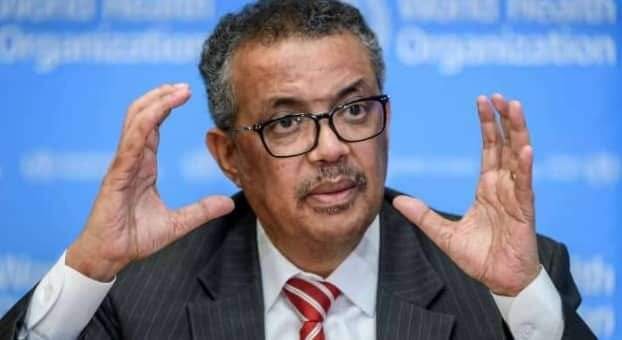
Monkey Pox Records Major Declines Globally
The Evangelist News Edition, May 14, 2023.By Adeze Ojukwu
Director-General of World Health Organization (WHO), Dr Tedros Ghebreyesus declared, yesterday, that “Monkey pox(mpox) is no longer a global health emergency.”
He stated this following advice from the Fifth Meeting of the International Health Regulation(IHR), 2005 Emergency Committee on the Multi-Country Outbreak of mpox.”
He noted, however, that “as with COVID-19, it does not mean that the work is over. Mpox continues to pose significant public health challenges that need a robust, proactive and sustainable response.”
According to a statement, representatives of Japan, Nigeria and the United Kingdom(UK) and Northern Ireland provided updates on the current epidemiological situation in their countries and on the public health measures being implemented.
“The WHO Region of Africa reported that more than 1500 cases were confirmed since January 2022 in 13 countries, with the majority of these cases being reported from Nigeria and the Democratic Republic of the Congo. There was little information on modes of transmission and the quality of reported data through the surveillance systems was uneven in the African Region.”
The Secretariat informed that the current global risk of the mpox multi-country outbreak is assessed as remaining moderate globally and in four of the WHO regions and remaining low in South-East Asia and the Western Pacific Regions.
The Emergency Committee “acknowledged the progress made in the global response to the multi-country outbreak of mpox and the further decline in the number of reported cases since the last meeting. It further noted a significant decline in the number of reported cases compared to the previous reporting period and no changes in the severity and clinical manifestation of the disease.’
It also acknowledged “remaining uncertainties about the disease, regarding modes of transmission in some countries, poor quality of some reported data, and continued lack of effective countermeasures in the African countries, where mpox occurs regularly. The Committee considered, however, that these are long-term challenges that would be better addressed through sustained efforts in a transition towards a long-term strategy to manage the public health risks posed by mpox, rather than the emergency measures inherent to a public health emergency of international concern (PHEIC).”
The Committee, emphasized “the necessity for long-term partnerships to mobilize the needed financial and technical support for sustaining surveillance, control measures and research for the long-term elimination of human-to-human transmission, as well as mitigation of zoonotic transmissions, where possible.”
The team also called for “integration of mpox prevention, preparedness and response within national surveillance and control programmes, including for HIV and other sexually transmissible infections, as an important element of this longer-term transition.”
It also noted that “the gains in control of the multi-country outbreak of mpox have been achieved largely in the absence of outside funding support and that longer-term control and elimination are unlikely unless such support is provided. These sustained investments will, in the long run, save money and lives, and reduce the risk of a global resurgence of mpox, as well as the risk of reverse zoonosis resulting in new areas where the virus may circulate.”










